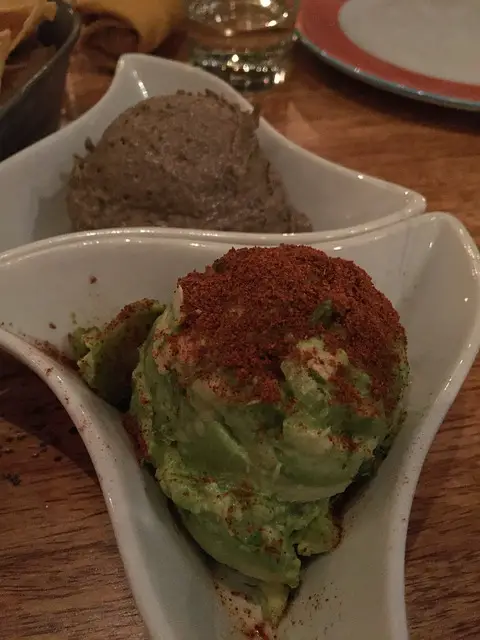Exploring Israel’s Culinary Gem Hummus – A National Treasure

In the vibrant tapestry of Israeli cuisine, one dish stands out as a beloved national treasure: hummus. This creamy, indulgent spread made from humble chickpeas, tahini, lemon juice, and garlic holds a special place in the hearts of Israelis and food enthusiasts around the world. Let’s delve into the rich history and cultural significance of hummus, and explore a classic recipe to recreate this iconic dish at home.

Page Contents
Exploring Israel’s Culinary Gem Hummus – A National Treasure
History and Cultural Significance:
Hummus traces its roots back centuries to the Levant region, which encompasses present-day Israel, Palestine, Jordan, Lebanon, and Syria. While the exact origins of hummus are debated, it is widely believed to have originated in Egypt or the Levant and spread throughout the region over time.
In Israel, hummus holds a cherished place in the culinary landscape, transcending cultural and religious boundaries. It is a staple food enjoyed by people of all backgrounds, whether as a simple breakfast spread, a hearty snack, or a communal dish shared among friends and family.


Recipe: Classic Hummus
Ingredients:
- 1 can (15 ounces) chickpeas (garbanzo beans), drained and rinsed
- 1/4 cup tahini (sesame paste)
- 3 tablespoons freshly squeezed lemon juice
- 2 cloves garlic, minced
- 2 tablespoons extra virgin olive oil, plus more for drizzling
- 1/2 teaspoon ground cumin
- Salt, to taste
- Water, as needed
- Optional garnishes: chopped parsley, paprika, pine nuts
Instructions:
- In a food processor, combine the drained chickpeas, tahini, lemon juice, minced garlic, olive oil, ground cumin, and a pinch of salt.
- Process the mixture until smooth and creamy, scraping down the sides of the bowl as needed. If the hummus is too thick, add water, 1 tablespoon at a time, until you reach your desired consistency.
- Taste the hummus and adjust the seasoning, adding more salt or lemon juice if needed.
- Transfer the hummus to a serving bowl and create a well in the center with the back of a spoon. Drizzle olive oil over the top and sprinkle with optional garnishes such as chopped parsley, paprika, or pine nuts.
- Serve the hummus with warm pita bread, fresh vegetables, or your favorite dipping accompaniments.
When traveling to Israel, it’s important to be polite and respectful in your interactions with locals. Here are seven polite words and phrases that you can use:
- Shalom (שָׁלוֹם): This is a common greeting in Hebrew and means “peace.” You can use it to say hello or goodbye to someone.
- Toda (תוֹדָה): This means “thank you” in Hebrew. It’s important to express gratitude when someone helps you or provides a service.
- Boker tov (בּוֹקֶר טוֹב): This means “good morning” in Hebrew. It’s a polite way to greet someone in the morning.
- Erev tov (עֶרֶב טוֹב): This means “good evening” in Hebrew. You can use it to greet someone in the evening.
- Slicha (סְלִיחָה): This means “excuse me” or “sorry” in Hebrew. You can use it to get someone’s attention or to apologize for something.
- Bevakasha (בְּבַקָּשָׁה): This means “please” in Hebrew. You can use it to make a request politely.
- Ken (כֵּן) / Lo (לֹא): This means “yes” and “no” in Hebrew, respectively. Using these words politely helps to communicate clearly in conversations.
Using these polite words and phrases will help you navigate social interactions smoothly and show respect for Israeli culture and customs.
Conclusion:
In Israel, hummus is more than just a dish—it’s a symbol of unity, shared heritage, and culinary innovation. Whether enjoyed in a bustling market stall in Tel Aviv, a cozy cafe in Jerusalem, or in the comfort of your own home, hummus embodies the spirit of Israeli cuisine: simple, flavorful, and deeply satisfying.
So gather your ingredients, fire up your food processor, and embark on a culinary journey to recreate this beloved national food of Israel. With each creamy bite of hummus and warm embrace of freshly baked pita bread, you’ll be transported to the sun-drenched streets of the Levant, where the aroma of spices and the sound of laughter fill the air. Enjoy the taste of Israel’s culinary gem—hummus, a dish to be savored and celebrated.







